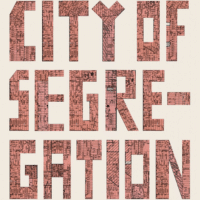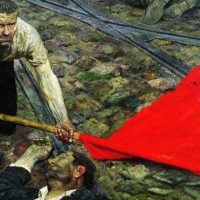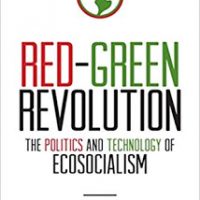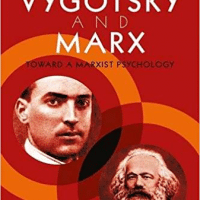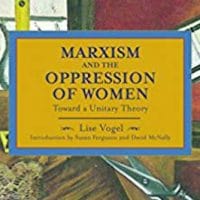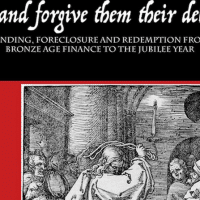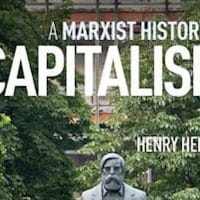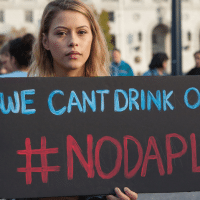-
Neoliberal fascism
Undoubtedly we live in the age of neoliberalism. There might also be a link between Neoliberalism and fascism. If one agrees with the rather enticing idea that Hayek’s ideology pamphlet The Road to Serfdom is the ur-texts of neoliberalism, then neoliberalism was indeed invented during the dying days of German Nazism and Italian fascism.
-
City of Segregation, One Hundred Years of Struggle for Housing in Los Angeles
Andrea Gibbons’ history of the battle for equal housing in LA uncovers the intensity and injustice of segregation, which remains a highly visible aspect of US cities, finds Adam Tomes
-
Review of ‘Facing the Apocalypse: Arguments for Ecosocialism’
Clearly there will be ecological issues to resolve once capitalism has been defeated, but that will require a system being put in place that is capable of dealing with the disaster. In other words a society that is not based on the competitive accumulation of capital.
-
Dissecting ROAR’s article “can the Bolivarian revolution survive the Venezuelan crisis?
ROAR published an article Can the Bolivarian revolution survive the Venezuelan crisis? containing the views of different professors, but with only two worth reading: Dario Azzellini’s and George Ciccariello-Maher’s. Of the others, Raul Zibechi appears to be the chosen faux left commentator committed to repeating U.S. ruling class propaganda against Venezuela.
-
Rock’s role in fighting fascism
The National Front (NF) was on the rise in the UK in the mid-1970s. It was the envy of other far right organisations, in particular its ideological cousin, France’s Front National (FN). A decade later the NF was broken and the FN’s star was rising. Why was the NF defeated while the FN went from […]
-
Students, the Sixties, and How to ‘Fail Better’
With their wide range of styles and perspectives, these little memoirs give a good sense of the period and the issues, but their value is more than historic. As a new generation is being drawn to radical politics, today’s activists may be able to gain useful insights from the experiences of their predecessors.
-
Vintage comics against war
The next phase of rebellious art, I have thought all this time, belonged to the rise of the Underground Comix of the later 1960s, with one tip of the hat to the campus satire magazines that in some places gave artists like Austin’s Gilbert Shelton a start, and another to Harvey Kurtzman’s failed magazines after Mad, especially Help! (1961-65).
-
Victor Wallis – Red-Green Revolution
The scale of environmental crisis is absolutely terrifying. So I was very pleased to read Victor Wallis’ new book Red-Green Revolution which aims to both explain capitalism and environmental destruction and offer a clear strategy for building a movement to challenge both.
-
Witches, Witch-Hunting and Women
Witches, Witch-Hunting and Women by Silvia Federici, reviewed by Jessica White.
-
Dust Bowls of Empire
The “Dust Bowl” of the 1930s was an iconic moment in American history. As a result of what one historian called “the inevitable outcome of a culture that deliberately, self-consciously, set itself [the] task of dominating and exploiting the land for all it was worth” tens of thousands of people fled their homes, usually losing their entire livelihoods in the process.
-
The language of capitalism isn’t just annoying, it’s dangerous
A new book argues that words like “innovation” are doing more than telling you who to avoid at parties.
-
Building a Marxist psychology
Carl Ratner is one of few psychologists working today who aims to develop psychology on an unabashedly Marxist foundation. The dominant narrative in psychology is that our minds and our society are direct manifestations of human biology.
-
Alienation and Freedom
For academics working on Frantz Fanon Alienation and Freedom is no less than a gift. With the publication of this book we finally have the complete available works of Fanon in English. Aptly divided into neat sections – Theatre, Psychiatric Writings, Political Writings, Publishing Fanon, Frantz Fanon’s Library and Life.
-
A Marxist theory of women’s oppression
In the new introduction to Lise Vogel’s Marxism and the Oppression of Women: Toward a Unitary Theory, Susan Ferguson and David McNally comment on the book’s “curious life-history.” They describe it, quite correctly, as a book that has lived largely in obscurity in spite of its innovative approach to the question of Marxism and women’s liberation and its enormous, though largely neglected, contribution to this important topic.
-
Everything you thought you knew about Western Civilization is wrong
A Review of Michael Hudson’s new book AND FORGIVE THEM THEIR DEBTS
-
The neoliberal Upside Down
When the Great Financial Crisis hit in 2008, there was a gasp of guilty excitement on the left at the sudden re-emergence of the conditions for radical social change, after 30 years of what has become known even by mainstream economists as ‘neoliberalism’: an obsession with privatisation and financialisation that has made the world more […]
-
Toward Racial Justice and a Third Reconstruction
This piece provides an overview of the bitterly polarized and consequential political moment in which the United States, along with many other countries, is embroiled in. It also suggests a strategic approach for U.S. progressives and the left to maximize our contribution to defeating the Trump and the far right, and advancing toward racial and social justice.
-
A Marxist History of Capitalism
An important work of Marxist history and theory restores class struggle to central place in explaining how capitalism arose and grew, and can eventually be overcome.
-
The Battle for Paradise
Naomi Klein gives a stirring account of the struggle against disaster capitalism in Puerto Rico after 2017’s Hurricane Maria, finds Ellen Graubart.
-
Marx, socialism, and ecology
Marx’s thought with regard to ecology has been neglected for a long time or has been misunderstood, both within and outside Marxism. Saito shows that Marx’s concern with the relation between humankind and nature is already present at an early stage of his thinking.


